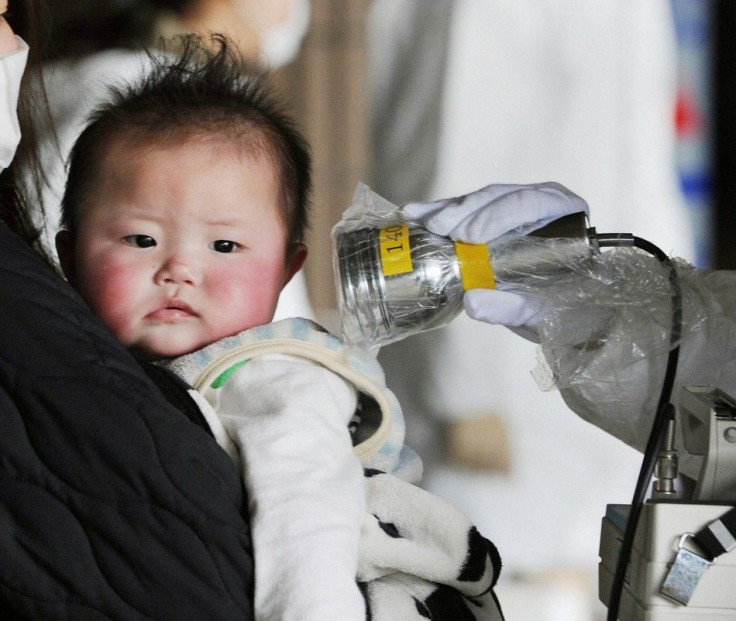Radioactive iodine detected in tap water in Chiba, Saitama prefectures

While the metropolitan government of Tokyo has lifted its warning on radioactive tap water, the nearby prefectures of Chiba and Saitama reported radioactive iodine was detected in their tap water sources.
The advisory has triggered a mad dash for bottled mineral water in the region.
In Chiba, two water treatment plants measured radioactive iodine Wednesday — at a level of 220 becquerels per liter at one and 180 at the other.
The Japanese government's recommended limit is 100 becquerels per liter for babies and 300 for anyone older.
As with Tokyo, local officials in Chiba (which is east of Tokyo) recommended that parents not give tap water to babies under one year old.
The high level of iodine was due to the nuclear disaster, said Chiba’s water safety official Kyoji Narita.
There is no question about it.
Saitama authorities have not taken the same step as iodine readings in its water fell below the regulated limits. (In Kawaguchi, Saitama Prefecture, the level of iodine dropped from 120 becquerels per liter Tuesday to 46 as of Thursday morning.)
Radiation levels have also tested high in Hitachi in Ibaraki prefecture, about 70 miles south of the Fukushima nuclear plant, city water official Toshifumi Suzuki said. Officials there are also distributing bottled water.
Meanwhile, Tokyo officials have eased their alert after it was found that radioactive iodine in the tap water at a purification plant in Katsushika Ward fell below the alert level for infants. However, the alert could be resumed if radiation levels climb again.
According to the Tokyo Waterworks Bureau, the level of iodine in local tap water fell to 79 becquerels per liter Thursday morning from a high of 210 on Tuesday and 190 on Wednesday.
Radioactive iodine has a half-life of only eight days. However, infants are particularly vulnerable to radioactive iodine, which has been known to cause thyroid cancer.
In response to the huge demand for bottled water, Japan’s Chief Cabinet Secretary Yukio Edano said the government has requested bottling companies to increase production. He added that the Tokyo government may ask foreign nations to supply water to Japan.
I can say there is almost no possibility that [tap water] would affect those apart from infants and would like people without infants to keep calm, Edano said at a news conference.
To ensure that families with infants are not impacted . . . I have asked for an increase in production and instructed authorities to provide them appropriately.
He added that government officials are monitoring tap water around the region and will issue timely reports on its quality.
Unfortunately, radioactive materials have been leaking from the [Fukushima No. 1] nuclear plant and I believe it is possible that (iodine will be detected) to a certain extent, Edano said.
And that is why the government has been strengthening its monitoring and taking firm measures to ensure that objective information is provided to the public even though there is no effect on their health.
© Copyright IBTimes 2024. All rights reserved.




















